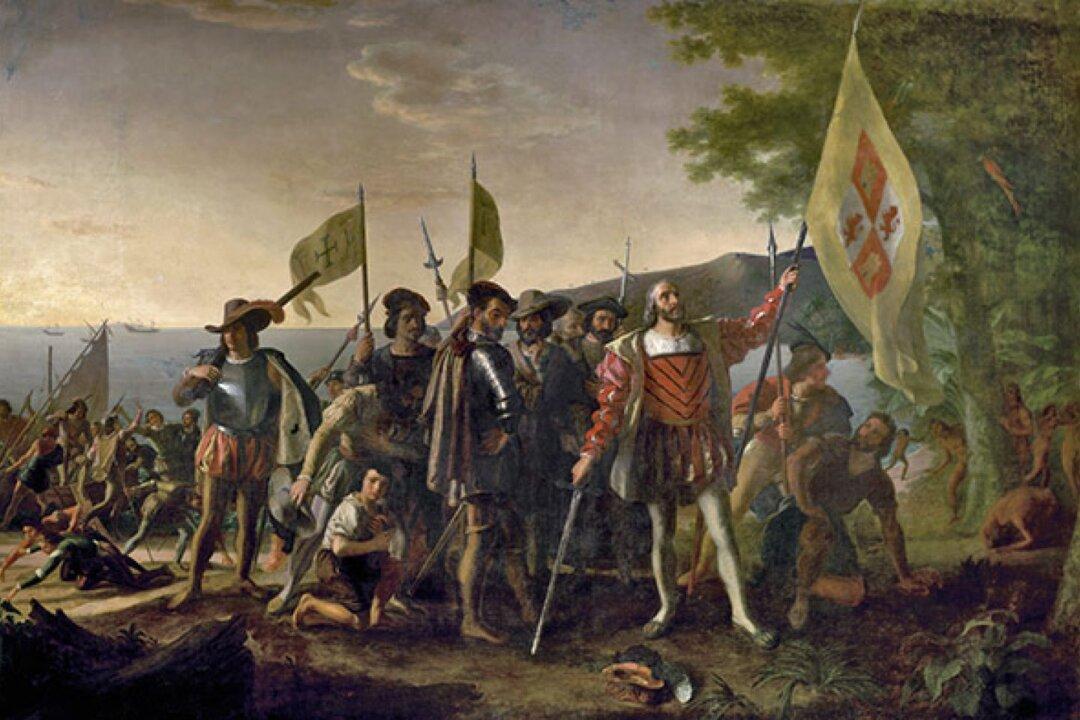When I was a boy living in Boonville, North Carolina, population then about 600, I loved reading histories and biographies written for kids and would then entice my brother and our two neighborhood friends, Allen and Richard, into reenacting what I had absorbed from those stories. In the nearby fields and forests, we charged the Yankees at Gettysburg; we waded ashore at Normandy on D-Day; we built snow forts to serve as our Valley Forge; we stood alongside Davy Crockett, James Bowie, and William Travis at the Alamo.
One occasion of such play-acting remains especially vivid in my mind’s eye. I was 9 years old and had learned, either at school or from my mother’s calendar in the kitchen, that it was Columbus Day. It was October, of course, brisk and windy, and I stood on the brick wall surrounding our patio, the wind blowing on my face, and looked across the back yard to the woods beyond and pretended I was in the mast for Columbus, the sailor who first announced “Land ahoy!”






